The Double Life of a Hip-Hop ‘Mogul’
Aaron "Big AT" Tremble, the main player in Terrance Dean's debut novel, "Mogul," is a music producer with a secret: He's on the up-and-up in his career, but he's also on the down low, struggling to come to terms with his sexuality at the risk of losing his family and his fame in the hip-hop industryIn Terrance Dean's debut novel, "Mogul," Aaron "Big A" Tremble is on the up-and-up as a music producer—but he's also on the down low.
debut novel, “Mogul,” reveals entertainment music producer Aaron “Big A.T.” Tremble’s struggle to come to terms with his sexuality. After compromising photos of Big A.T. and another man are sent to his girlfriend, he must decide whether to publicly disclose his gay behavior and risk his success in a homophobic hip-hop culture.
Big A.T. is essentially on the down low. In early 1990s rhythm and blues songs like “Creep” by TLC and “Down Low” by R. Kelly, “keeping it on the down low” meant keeping a taboo heterosexual relationship a secret. After J.L. King’s 2004 confession on Oprah’s couch about being a married man who had secret same-sex relationships, public conversations about the down low morphed from a heterosexual dalliance to a deviant identity synonymous with deceitful, manipulative and sexually irresponsible black masculinity. Although anyone can choose to keep his sexual behavior private, and although not all black men who have discreet sex with other men are in committed relationships with wives or girlfriends, thinking of the black man as a sexual predator whose duplicity was responsible for increasing HIV transmission rates among black women fit society’s stereotypes of the sexually irrepressible black male.
“Mogul” is a refreshing read because Big A.T. is not a sexual predator. The novel is not an exposé about villainous down-low men and the women they victimize. Instead, “Mogul” explores the consequences of deception by encouraging partners to protect themselves. It’s a cautionary tale about a man who cares for his girlfriend, but truly loves, and wants to publicly be in a relationship with, his male lover. Big A.T. is a good man who makes several bad decisions because he is discouraged from being himself by the hip-hop entertainment industry, which secured his fame, and his family, which sustains his well-being.
Hip-hop masculinity is hard and impenetrable (puns intended), which is why being an out, gay man within hip-hop is irreconcilable with the culture’s values. Hip-hop’s machismo posturing masks the insecurity of men who feel emasculated by the world around them. When presented with a choice, a rapper will rap about murdering “faggot-ass bitches” to secure his drug empire before he will rap about his functional illiteracy and perpetual unemployment. Homophobia within hip-hop is a defense against the perception of weakness. The rapper who virulently hates weaker gay men (“faggots”) or weaker feminine men or women (“bitches”) believes he is less likely to be seen as similarly weak. As a mogul, Big A.T. finds himself buying into the images he helps create even though they counter his true identity.
Along with exploring the rigid expectations for black masculinity within hip-hop, Dean describes the rampant sexual exploitation within the industry. One of Big A.T.’s mentors proclaims, “I hope you don’t think everybody got here based on pure talent.” Women have written about trading sexual favors for success, but Dean is one of the first novelists to deftly explore men’s compromises regarding the pressure to engage in sex with other men in hip-hop. The sexual manipulation of young men by their superiors contextualizes the sexual coercion accusations against influential religious leaders such as Bishop Eddie Long.
|
To see long excerpts from “Mogul” at Google Books, click here. |
Big A.T.’s surrogate father, Larry “Pop” Singleton, supports Big A.T. but also wields power and influence over him. Big A.T. gives sexual favors to Pop in order to establish his career. In return, Pop introduces Big A.T. to “the family,” a network of secretly gay men who then work behind the scenes in the hip-hop world to mold Big A.T. into a mogul. Because the “family” members share each other’s secrets, Big A.T. realizes that telling the truth about himself compromises the very community that allows him to be himself. Even his safest space is rife with contradictions about the standards for acceptable black masculine sexuality.
This complexity is the true genius of the story. The “family” members perpetuate the same exploitative and dishonest practices as the constraining homophobic hip-hop empire that they created and are ironically trying to escape. Dean deserves commendation for exposing the down low as a behavior, a choice made under a multifaceted set of circumstances, and not a definitive demonized identity. And yet, the message of “Mogul” is much bigger than sexuality. As Big A.T. decides how to respond to those compromising photos, readers themselves must ask how much their secrets define them and whether revealing sexual behavior is worth risking their livelihoods or compromising their families’ privacy.
Your support matters…Independent journalism is under threat and overshadowed by heavily funded mainstream media.
You can help level the playing field. Become a member.
Your tax-deductible contribution keeps us digging beneath the headlines to give you thought-provoking, investigative reporting and analysis that unearths what's really happening- without compromise.
Give today to support our courageous, independent journalists.

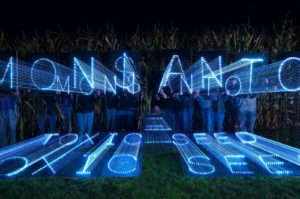
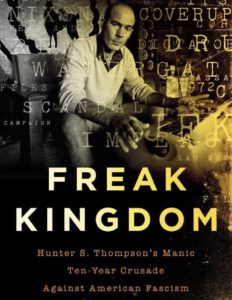
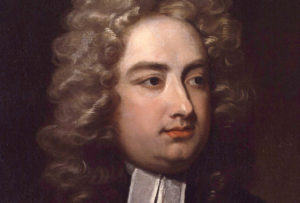
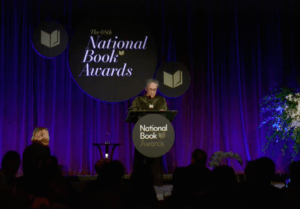
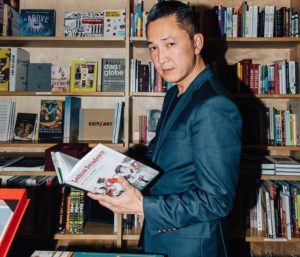

You need to be a supporter to comment.
There are currently no responses to this article.
Be the first to respond.